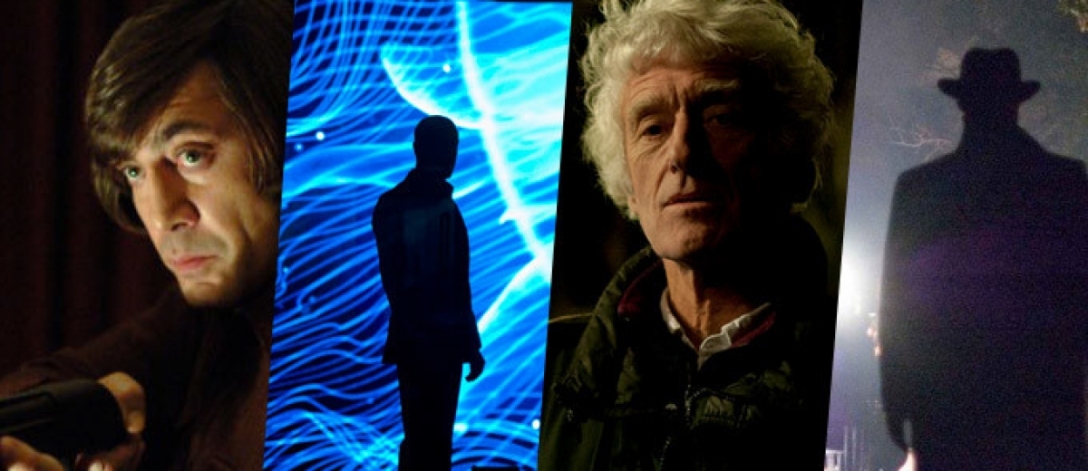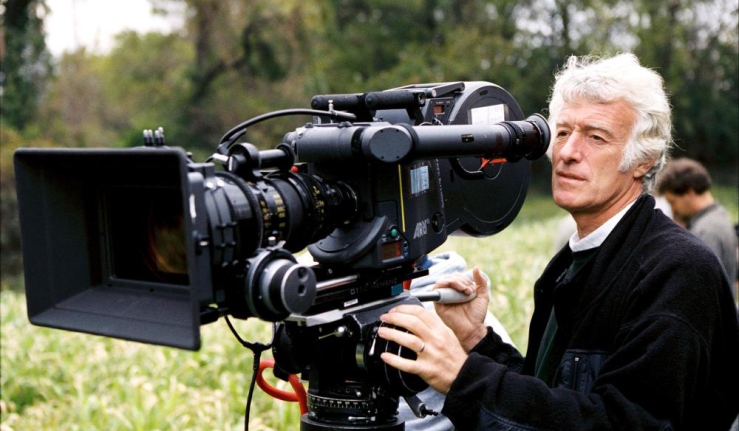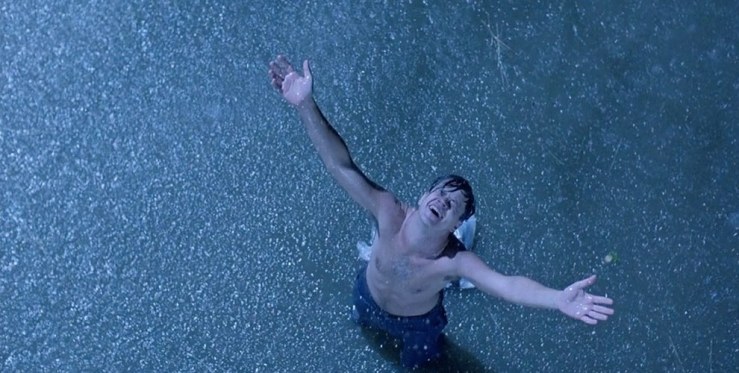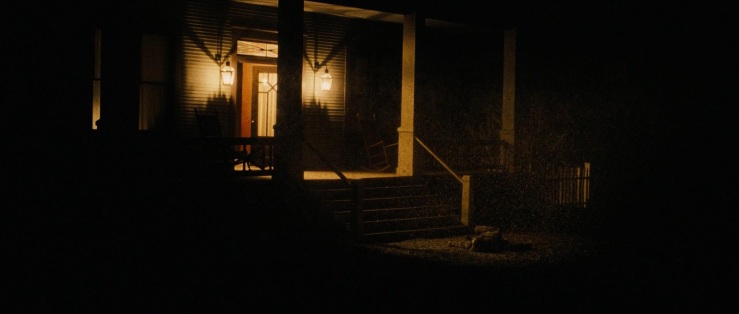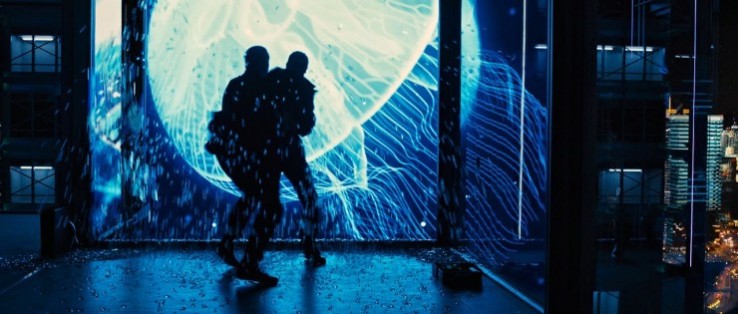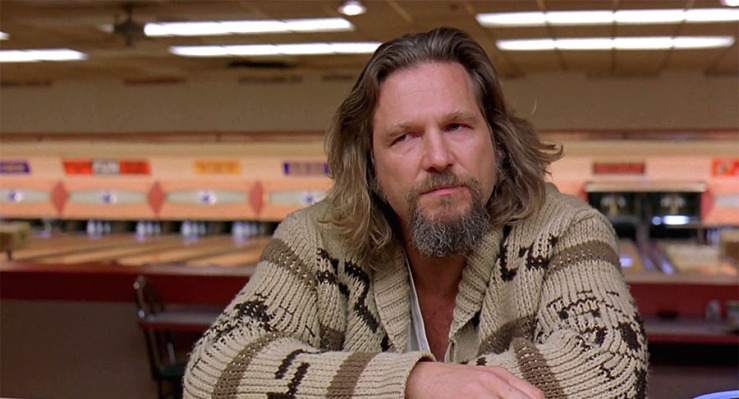There’s always a strong debate on whether the Oscars are truly relevant in showcasing the overall quality of a film, particularly with the Best Picture winner. This is especially true in recent years, as many have called the Academy’s recent choices “safe”. We could argue that all day, but I’d like to think that they’re still at least picking good movies, even if some of them haven’t aged well. With that being said, let’s take a look at the last ten movies to win Best Picture and see which ones have stood the test of time or faded away from public consciousness. I will also briefly leave my pick on what should have won that year out of the nominated films, so you won’t see mentions of such films as The Dark Knight or Drive, as they were not nominated. If you guys like it, I’ll see about doing this again next year with the upcoming Best Picture winner in mind. Until then, the list is as follows:
 10. The King’s Speech – This is the very definition of an inspirational film, and I do mean that in the best way. Colin Firth (Tinker Tailor Soldier Spy) gives the performance of his career as King George VI, finding all the best places to insert Bertie’s signature stammer in the screenplay. Under the hands of a more gutsy director, this could have been a true tour-de-force film that deserved to win Best Picture. But under the direction of Tom Hooper (Les Misérables), it just feels rather safe. However, despite it being at the bottom of my list, this is by no means a bad movie, and it still holds a special place in my heart as one of the tools I used to overcome my own stammer. Again, the very definition of an inspirational film, just not much beyond that.
10. The King’s Speech – This is the very definition of an inspirational film, and I do mean that in the best way. Colin Firth (Tinker Tailor Soldier Spy) gives the performance of his career as King George VI, finding all the best places to insert Bertie’s signature stammer in the screenplay. Under the hands of a more gutsy director, this could have been a true tour-de-force film that deserved to win Best Picture. But under the direction of Tom Hooper (Les Misérables), it just feels rather safe. However, despite it being at the bottom of my list, this is by no means a bad movie, and it still holds a special place in my heart as one of the tools I used to overcome my own stammer. Again, the very definition of an inspirational film, just not much beyond that.
Should have won: The Social Network
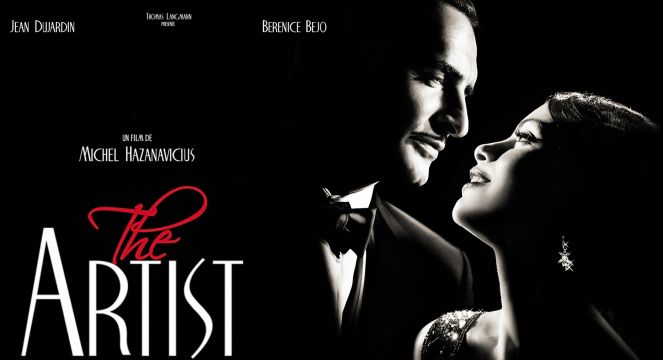 9. The Artist – Another safe movie, but there is a significant difference between The Artist and The King’s Speech, and that difference is what ultimately resulted in the former ranking higher on this list. Instead of being safe but inspirational like The King’s Speech, The Artist lacks in inspiration but makes up for it by actually taking advantage of its craft. Okay, it doesn’t do that much, but this almost-completely silent film does have a couple jarring scenes with sound that are used to great effect, each showing the turmoil and development of its protagonist. The end result may not have been spectacular, but the ambition is definitely there. Sometimes, that’s enough to get you a leg up over someone else.
9. The Artist – Another safe movie, but there is a significant difference between The Artist and The King’s Speech, and that difference is what ultimately resulted in the former ranking higher on this list. Instead of being safe but inspirational like The King’s Speech, The Artist lacks in inspiration but makes up for it by actually taking advantage of its craft. Okay, it doesn’t do that much, but this almost-completely silent film does have a couple jarring scenes with sound that are used to great effect, each showing the turmoil and development of its protagonist. The end result may not have been spectacular, but the ambition is definitely there. Sometimes, that’s enough to get you a leg up over someone else.
Should have won: Hugo
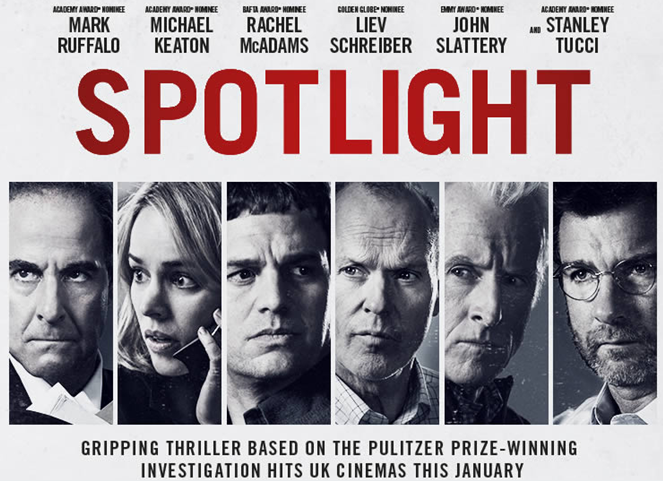 8. Spotlight – Most people might’ve forgotten that this movie won Best Picture. While that may be mostly because it came on the heels of Leonardo DiCaprio (Inception) finally winning an Oscar, I think part of the reason is how stale and unmoving it is. In some ways, that’s the film’s biggest weakness, as it’s hard to get invested in a story and characters when the story and characters themselves aren’t invested in the story and characters. But that may also be its biggest strength, as one of the major themes of the film is that the pedophile priests were in plain sight and everybody knew about them, but for one reason or another they were too afraid to say anything. Whichever way you look at it, this is definitely a film that lends itself to airing on TV, and I guess someone had the bright idea that it was meant for bigger things.
8. Spotlight – Most people might’ve forgotten that this movie won Best Picture. While that may be mostly because it came on the heels of Leonardo DiCaprio (Inception) finally winning an Oscar, I think part of the reason is how stale and unmoving it is. In some ways, that’s the film’s biggest weakness, as it’s hard to get invested in a story and characters when the story and characters themselves aren’t invested in the story and characters. But that may also be its biggest strength, as one of the major themes of the film is that the pedophile priests were in plain sight and everybody knew about them, but for one reason or another they were too afraid to say anything. Whichever way you look at it, this is definitely a film that lends itself to airing on TV, and I guess someone had the bright idea that it was meant for bigger things.
Should have won: The Revenant
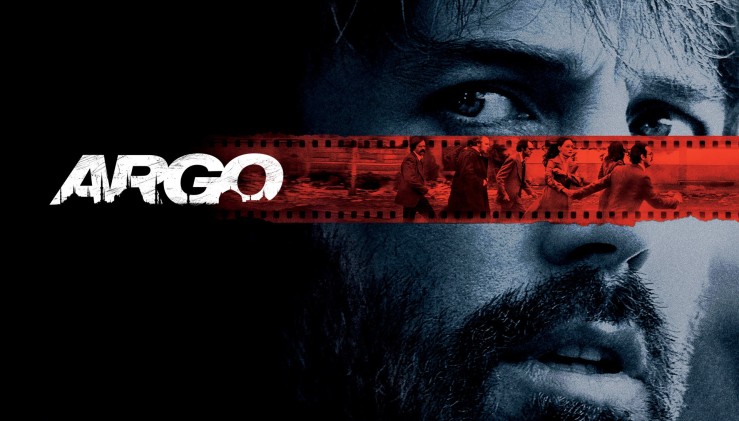 7. Argo – This is the only reason I still consider Three Billboards Outside Ebbing, Missouri to be a prominent Best Picture contender this year, because very few movies have won Best Picture without even being nominated for Best Director. While many may attribute this to the film being about Hollywood swooping in and saving the day, let’s not forget that this is still a well-made thriller with some genuinely suspenseful sequences, particularly the opening raid on the American Embassy in Iran and a marketplace tour towards the end of the second act. My only real issue is that the supporting cast isn’t terribly memorable, and they’re the people who we’re supposed to care about whether or not they’re rescued. That’s why it’s not higher on this list, but it’s still worth a viewing or two nonetheless.
7. Argo – This is the only reason I still consider Three Billboards Outside Ebbing, Missouri to be a prominent Best Picture contender this year, because very few movies have won Best Picture without even being nominated for Best Director. While many may attribute this to the film being about Hollywood swooping in and saving the day, let’s not forget that this is still a well-made thriller with some genuinely suspenseful sequences, particularly the opening raid on the American Embassy in Iran and a marketplace tour towards the end of the second act. My only real issue is that the supporting cast isn’t terribly memorable, and they’re the people who we’re supposed to care about whether or not they’re rescued. That’s why it’s not higher on this list, but it’s still worth a viewing or two nonetheless.
Should have won: Life of Pi
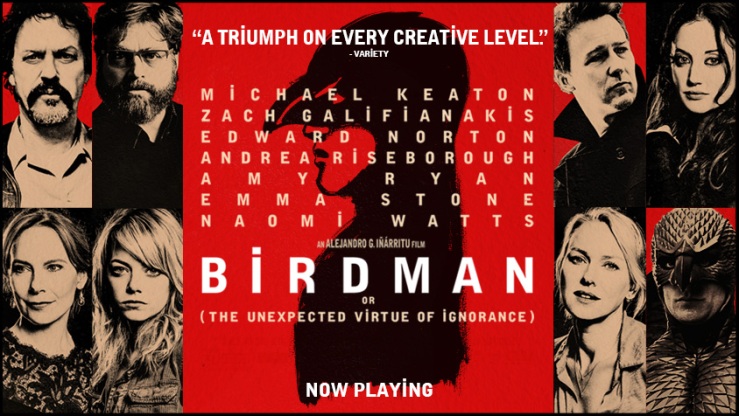 6. Birdman – Yet another film about Hollywood, though this one does take a bit of a stab at it. The theme of the film seems to be rebellion, and this is mostly shown through Riggan Thomson (Michael Keaton) and his daughter Sam (Emma Stone), the latter rebelling against her father who is rebelling against Hollywood and superhero films, each having provided a lot for the well-being of those under them in this rebel cycle. Basically, everybody’s biting the hand that feeds them, but the film also tries to show how that hand is also choking them, which makes us ask if either action is ever justified. The long-take (or illusion thereof) by cinematographer Emmanuel Lubezki (Gravity) further illustrates this rebellion against the myriads of quick cuts seen in most superhero movies, and major props to the production designers for keeping the sets filled with something interesting to look at the entire time. While it may not soar like its title character, its wings are still powerful enough to get airborne.
6. Birdman – Yet another film about Hollywood, though this one does take a bit of a stab at it. The theme of the film seems to be rebellion, and this is mostly shown through Riggan Thomson (Michael Keaton) and his daughter Sam (Emma Stone), the latter rebelling against her father who is rebelling against Hollywood and superhero films, each having provided a lot for the well-being of those under them in this rebel cycle. Basically, everybody’s biting the hand that feeds them, but the film also tries to show how that hand is also choking them, which makes us ask if either action is ever justified. The long-take (or illusion thereof) by cinematographer Emmanuel Lubezki (Gravity) further illustrates this rebellion against the myriads of quick cuts seen in most superhero movies, and major props to the production designers for keeping the sets filled with something interesting to look at the entire time. While it may not soar like its title character, its wings are still powerful enough to get airborne.
Should have won: Boyhood
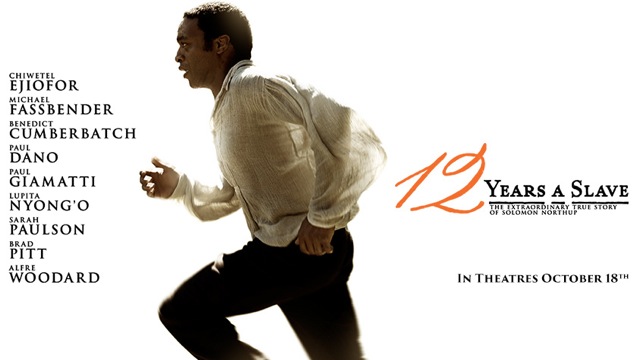 5. 12 Years a Slave – You all knew we were gonna get to this one sooner or later. You don’t want to talk about it, just like you didn’t want it to win. Well, I’m with you, but I’m the one writing this blog so we’re gonna talk about it anyway. This is a cold and unforgiving portrait of slavery in pre-Civil War America, even more so when Solomon Northup (Chiwetel Ejiofor) had tasted freedom his whole life. As painful as it is to watch, a lot of that is thanks to the actors and how much range they bring to their performances, particularly Chiwetel Ejiofor (The Martian) and Michael Fassbender (Inglourious Basterds). They prove that the calmest scenes can be just as unsettling as anything else when the setting is this relentlessly cruel. There, now that we’re done, we can be happy, right?
5. 12 Years a Slave – You all knew we were gonna get to this one sooner or later. You don’t want to talk about it, just like you didn’t want it to win. Well, I’m with you, but I’m the one writing this blog so we’re gonna talk about it anyway. This is a cold and unforgiving portrait of slavery in pre-Civil War America, even more so when Solomon Northup (Chiwetel Ejiofor) had tasted freedom his whole life. As painful as it is to watch, a lot of that is thanks to the actors and how much range they bring to their performances, particularly Chiwetel Ejiofor (The Martian) and Michael Fassbender (Inglourious Basterds). They prove that the calmest scenes can be just as unsettling as anything else when the setting is this relentlessly cruel. There, now that we’re done, we can be happy, right?
Should have won: The Wolf of Wall Street
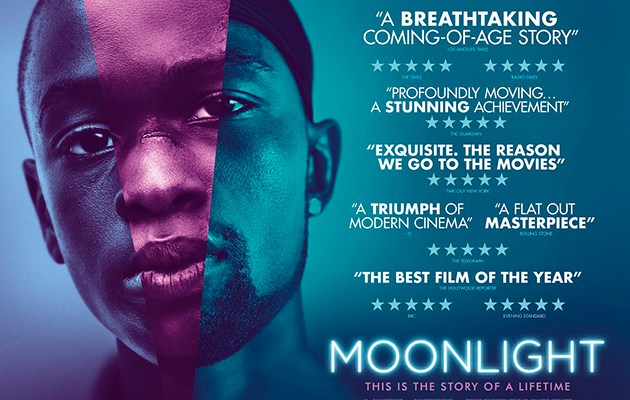 4. Moonlight – It’s no mistake, Moonlight just barely missed out on the top three. As much as anyone can relate to this story, especially as someone who spent years living in and exploring South Florida, much of this film’s longevity will be because of the manner in which it was presented with the Best Picture Oscar. But while it may be too artsy for casual viewers’ tastes, it’s still a great film that tells a sprawling epic on an intimate scale. If you’ve been to South Beach, you immediately recognize it when one of the film’s key scenes begins there, even though it may look like just any other beach. It’s a film about a journey, which is what most movies are anyway, but this journey is unique to the character of Chiron and unique throughout cinema, and somehow we all saw ourselves in this journey. And that is no mistake.
4. Moonlight – It’s no mistake, Moonlight just barely missed out on the top three. As much as anyone can relate to this story, especially as someone who spent years living in and exploring South Florida, much of this film’s longevity will be because of the manner in which it was presented with the Best Picture Oscar. But while it may be too artsy for casual viewers’ tastes, it’s still a great film that tells a sprawling epic on an intimate scale. If you’ve been to South Beach, you immediately recognize it when one of the film’s key scenes begins there, even though it may look like just any other beach. It’s a film about a journey, which is what most movies are anyway, but this journey is unique to the character of Chiron and unique throughout cinema, and somehow we all saw ourselves in this journey. And that is no mistake.
Should have won: La La Land
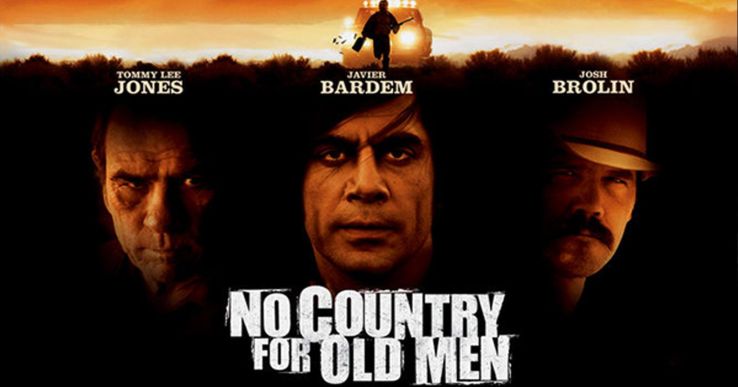 3. No Country for Old Men – Like Anton Chigurh (Javier Bardem), we’re starting to creep into darker territory here, and also where the films become more deserving of a Best Picture win. While I would not have voted for it to win, this is still a fantastic effort by the then-overdue Coen Brothers (True Grit), who infused their signature wit into a lawless and desolate wasteland that makes the Old West look like a rompin’ good time. All of the actors give it their all, but it really is Javier Bardem (Skyfall) who steals the show and everything else out from under everyone. It’s the kind of movie that slowly stalks you after you’re done watching it and appears in your thoughts when you least expect it, even though you’ve been anticipating its arrival the whole time.
3. No Country for Old Men – Like Anton Chigurh (Javier Bardem), we’re starting to creep into darker territory here, and also where the films become more deserving of a Best Picture win. While I would not have voted for it to win, this is still a fantastic effort by the then-overdue Coen Brothers (True Grit), who infused their signature wit into a lawless and desolate wasteland that makes the Old West look like a rompin’ good time. All of the actors give it their all, but it really is Javier Bardem (Skyfall) who steals the show and everything else out from under everyone. It’s the kind of movie that slowly stalks you after you’re done watching it and appears in your thoughts when you least expect it, even though you’ve been anticipating its arrival the whole time.
Should have won: There Will Be Blood
 2. Slumdog Millionaire – If we don’t count the two or three or four movies that should’ve been nominated for Best Picture that year but weren’t, the Academy made the right choice picking this movie. Even if we do count them, there’s still that argument to be made. Danny Boyle (127 Hours) doesn’t shy away from showing the darker side of the slums in India, but at the same time he borrows a few tactics from Bollywood filmmaking to craft this love story that spans across time, distance, and game shows. There are plenty of dark moments, but it’s ultimately satisfying at the end, and the music by A. R. Rahman (Lagaan) fits the mood throughout the entire film. It’s a feel good movie that gives you every reason and desire to feel good. Whether you think it’s outclassed or not, it’s still one for the ages.
2. Slumdog Millionaire – If we don’t count the two or three or four movies that should’ve been nominated for Best Picture that year but weren’t, the Academy made the right choice picking this movie. Even if we do count them, there’s still that argument to be made. Danny Boyle (127 Hours) doesn’t shy away from showing the darker side of the slums in India, but at the same time he borrows a few tactics from Bollywood filmmaking to craft this love story that spans across time, distance, and game shows. There are plenty of dark moments, but it’s ultimately satisfying at the end, and the music by A. R. Rahman (Lagaan) fits the mood throughout the entire film. It’s a feel good movie that gives you every reason and desire to feel good. Whether you think it’s outclassed or not, it’s still one for the ages.
Should have won: Slumdog Millionaire
 1. The Hurt Locker – Finally at the top, we come to one of the best and most challenging war films of the 21st Century, one whose screenplay runs with the traditional hero’s journey but then flips it on its head. Kathryn Bigelow (Zero Dark Thirty) understood what this script was going for, and had the film shot with as much realism in order to normalize the experience of war to the audience, which is exactly the perspective we need to be in to understand the decisions made by the protagonist. For him, war is the normal world, and this is important in understanding the character and the culture we live in where we have become so desensitized to war and violence that we can’t get enough of it, almost like an addiction that we rush back to every chance we get. It’s a haunting and realistically fresh take on familiar themes and stories, but that makes it all the better because of it, and that’s why it’s the best Best Picture winner of the last decade.
1. The Hurt Locker – Finally at the top, we come to one of the best and most challenging war films of the 21st Century, one whose screenplay runs with the traditional hero’s journey but then flips it on its head. Kathryn Bigelow (Zero Dark Thirty) understood what this script was going for, and had the film shot with as much realism in order to normalize the experience of war to the audience, which is exactly the perspective we need to be in to understand the decisions made by the protagonist. For him, war is the normal world, and this is important in understanding the character and the culture we live in where we have become so desensitized to war and violence that we can’t get enough of it, almost like an addiction that we rush back to every chance we get. It’s a haunting and realistically fresh take on familiar themes and stories, but that makes it all the better because of it, and that’s why it’s the best Best Picture winner of the last decade.
Should have won: The Hurt Locker
So what have we learned? Aside from a few outliers, the safe films did drift towards the bottom of the list, while the upper half was dominated by darker films. Even when we had moments of happiness in the top half or melancholy in the bottom half, it was still balanced out (and then some) by the dominating emotion of the film. But the better films are generally more challenging, whether they challenge the audience or the filmmaking craft. Having said that, all of these films are still worth a watch. Maybe you’ll get something out of them, maybe you won’t. They all seemed to have resonated with someone if they managed to win the title of Best Picture.


